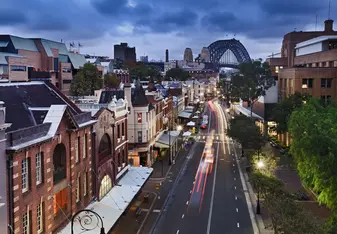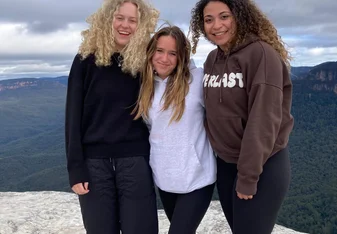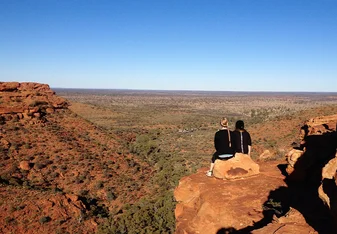How to Study Abroad in Australia on a Budget
Studying abroad in Australia can be an unforgettable experience, but it can also be a costly one. Here's how to study abroad in Australia on a budget, with money-saving tips from a fellow student.
TL;DR👀
- Apply for as many scholarships are possible
- Build a reasonable budget and stick to it
- Use flight trackers to find deals on airfare
- Learn to cook
- Don't buy alcohol often from bars and restaurants
- Use public transportation
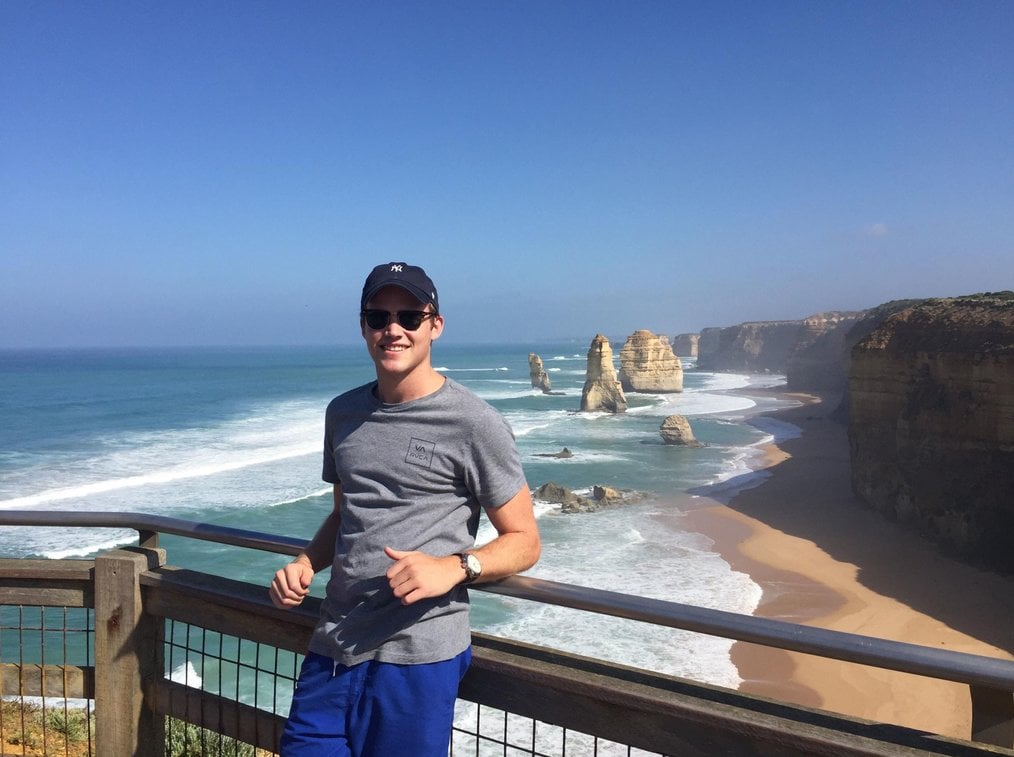
Photo by: Chris S., The Intern Group Australia
G’day! You’ve decided to study abroad in Australia, the country that offers endless coastlines, incredible wildlife, inviting weather, and some of the friendliest people on the planet. With all it has to offer, it’s no wonder why this country has become a favorite location for students across the world to study abroad. However, with a relatively high cost of living, your study abroad experience could turn out to be quite an expensive venture if you don’t carefully budget.
Before I left to study abroad in Australia, I was bad with money. I was what you would call a spontaneous buyer, seeing how I could walk into Walmart for a loaf of bread and come out with a new TV. This all had to change if I were to study abroad in a foreign country with no source of income: I needed to budget.
Through trial and error, I was able to make a relatively small amount of money go a long way during the nine months I spent studying in Australia -- and I still had an incredible time in the process. Here’s how you can do it too.
Apply for scholarships through your university
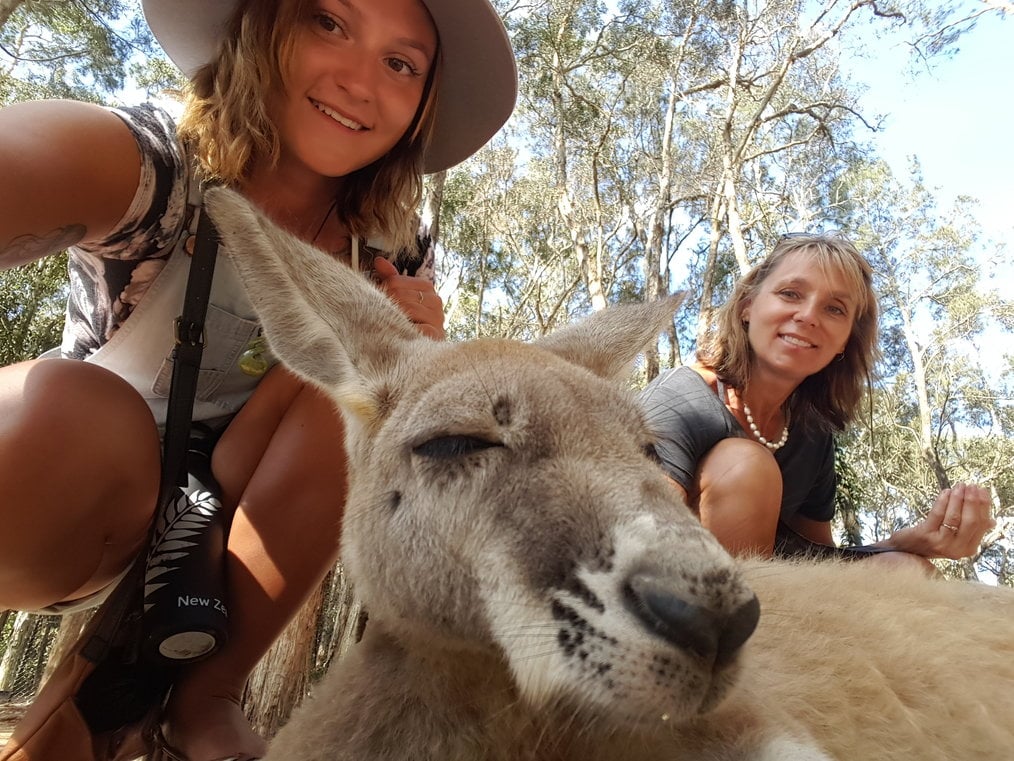
The very first step you should take towards budgeting for any study abroad trip is to apply for scholarships. There are many public scholarships available for study abroad students, but sometimes the best place to look is through your own university.
I am a business student at Montana State University and the business school happened to be giving out scholarships for study abroad students. Because there were only a handful of business students who were studying abroad, nearly every student who applied received at least some amount of aid from the school.
During your scholarship search, look for study abroad scholarships promoted by your own university before looking elsewhere. Because of the limited number of applicants, especially in majors like business and STEM subjects, your odds of receiving one of these scholarships will be much higher.
Outline a budget & stick to It
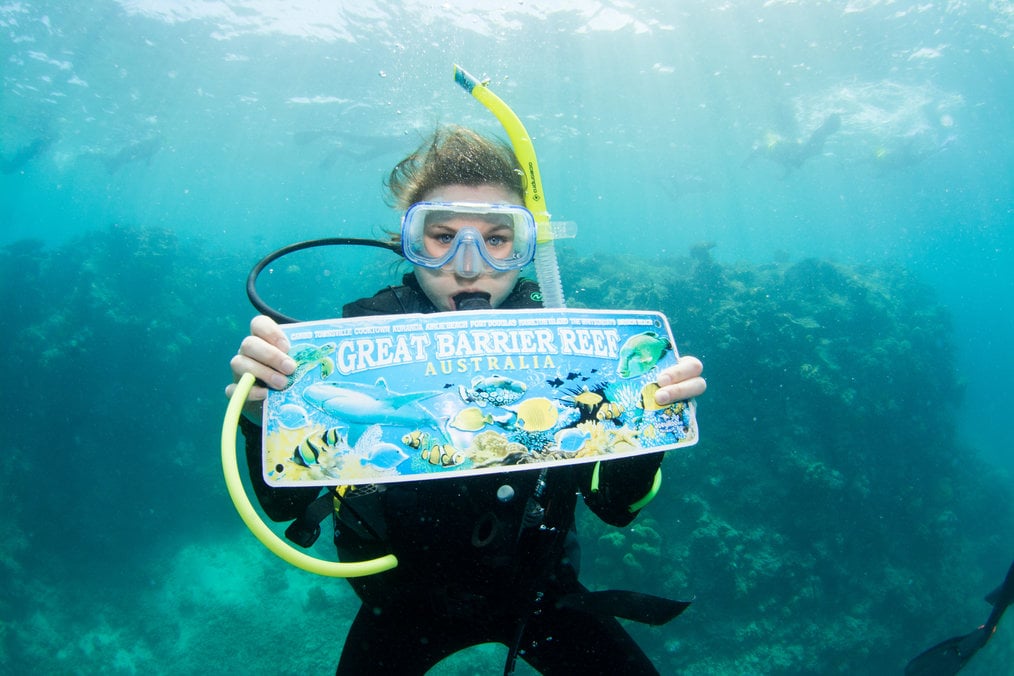
The easiest way to make sure you don’t overspend while overseas is to outline a budget and stick with it. I used a spreadsheet to see how much of my money I could allocate towards fun activities while still having enough left over for the necessities. I always set a goal for myself to spend less than my weekly allocation. If I did, those remaining funds would roll over to the next week, giving me more spending money in the future if I wanted to do any traveling or grab a drink or two at the pub with my friends.
The best part about budgeting for study abroad in Australia is the exchange rate. Every American dollar spent is worth about $1.35 Australian dollars, meaning your money will go a lot further in their economy. If a sandwich costs you $8.00 in AUD, it really only costs you around $6.00 in USD. Keep that in mind as you travel, because some things are not actually as expensive as you might think. It’s very important to take note of this if you are purchasing more expensive items, like airline tickets or tours.
Recommended programs:
Snag flight deals to save on travel expenses
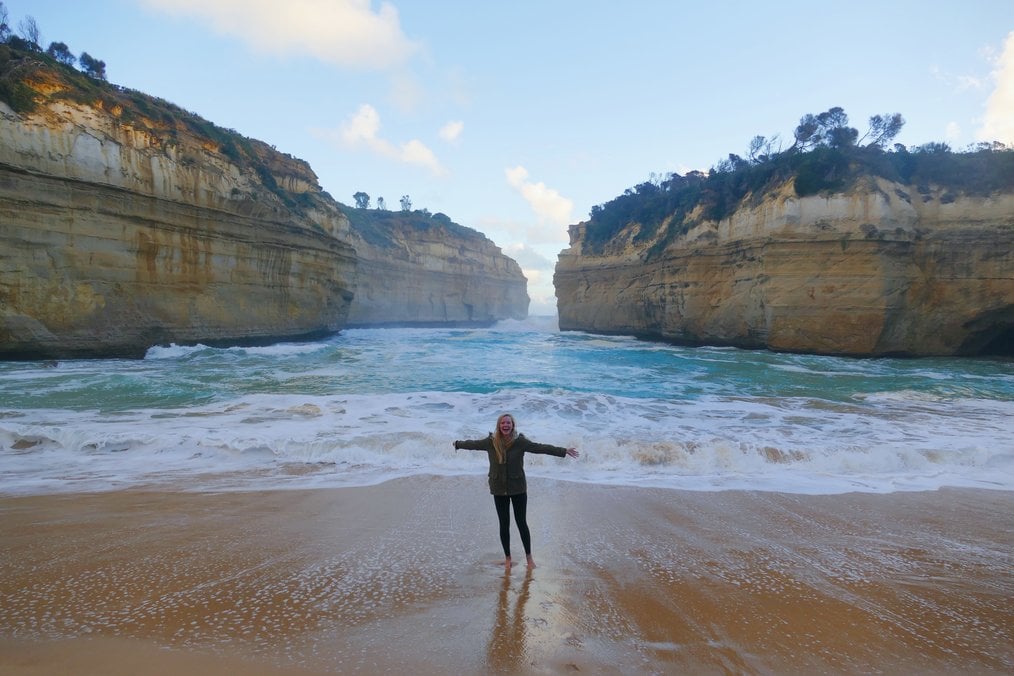
Airline tickets to Australia will most likely be your biggest singular expense during your study abroad experience. Depending on where and when you depart, a round-trip flight could cost you over $2,000. However, some airline companies will often offer special promotions when traveling between the United States and Australia. Qantas has a number of sales throughout the year, and they occasionally offer round-trip fares for as low as $1,000. Their website would be a good place to start.
When I flew back to Australia for the second semester, I waited too long to purchase my flights and found that a one-way ticket from Bozeman Montana to Brisbane Australia would put me back more than $1200. I was determined to find a cheaper ticket, and that’s when I came across the Hawaii loophole.
While searching, I managed to find a one-way ticket from Bozeman to Honolulu for just $250 and a one-way from Honolulu to Brisbane for just $400. So rather than paying the high price of $1,200, I only paid around $650. I then found the same deal on my way home. This loophole might not always be available, but it’s definitely something you should look into if you’re coming from the U.S. You can even give yourself a one or two-day layover to explore Hawaii if you have a little extra spending money thanks to all that successful budgeting you’ll do.
Take advantage of cheap eats
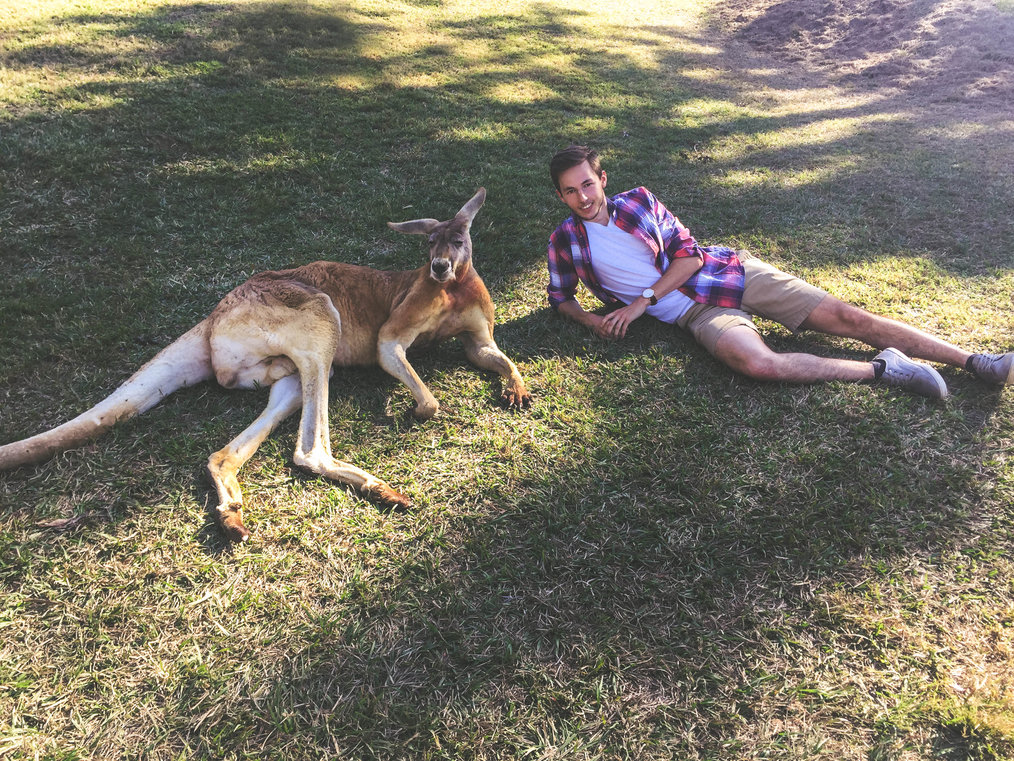
If you’re on a budget while studying abroad, it’s best to avoid eating out as much as you can. Now, I am guilty of making the occasional midnight Maccas (McDonald's according to Aussies) run, but for the most part, I managed to buy the majority of my food from grocery stores. This saves a huge amount of money because rather than going out and spending $10-$20 for one lunch or dinner, you spend $10-$20 for several days worth of food.
People typically do their food shopping at either Woolworths or Coles, which are popular grocery chains in Australia. Unfortunately, Walmart and Costco do not yet have stores in Australia, so groceries will cost a bit more than they do in the U.S.
While I was at college, I had paid for a meal plan as part of my room and board. However, in order to save money while studying abroad, I canceled my breakfast and lunch plan and decided to buy those meals from the store. Since my dorm didn’t offer full kitchen facilities, I found myself living on PB&J sandwiches and two-minute noodles. Just like in the United States, ramen is a pretty popular meal for Aussie students who are trying to save money. Bagels and cereal were my go-to cheap breakfast options, but if you’re brave you might try Vegemite on toast; a classic Australian spread.
To drink or not to drink: alcohol on a budget
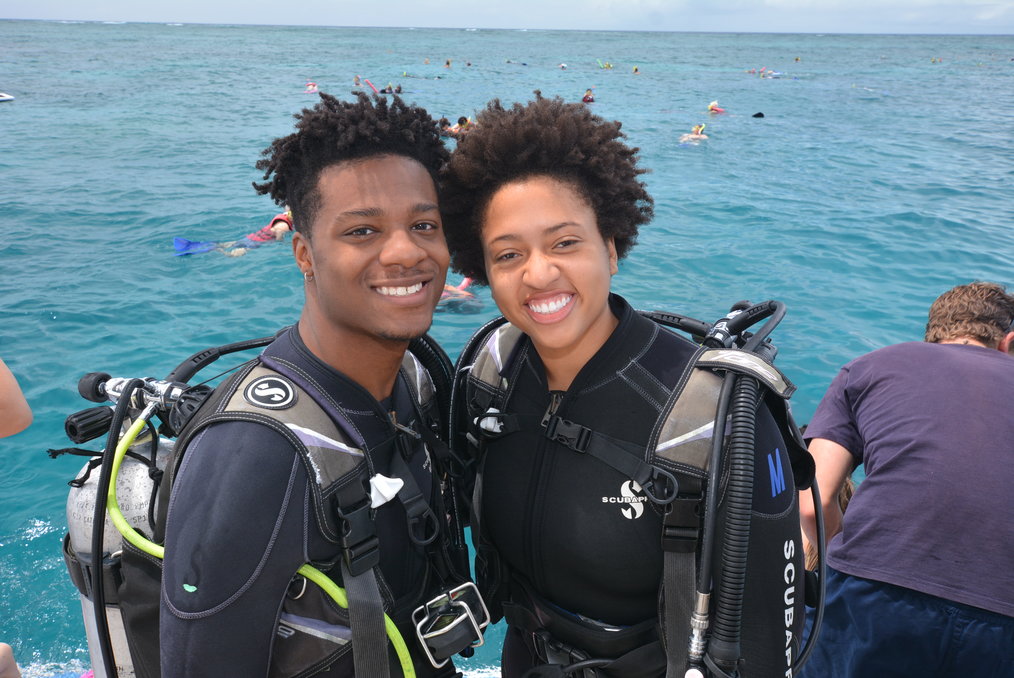
Since the drinking age in Australia is 18, this trip may be the first time you finally reach the legal drinking age if you’re under 21. However, if you plan on going out with your friends and buying a few drinks, be prepared to spend a lot of money.
Alcohol and tobacco are taxed heavily in Australia, so you should expect to pay around $18-$22 for a six-pack of beer, $35-$60 for a bottle of spirits, and around $10-$15 for a bottle of wine (all in AUD). If you are on a budget, drinking is one of those expenses where you could cut back and save a lot of money. When you do decide to go out, here are two important tips to help you save money.
- Don’t buy drinks in town. The average drink at a pub or club will cost you around $8, so it really adds up. Have a few drinks before you go out and you can still have a good time without putting a huge dent in your wallet. If you do buy drinks in town, look for places that offer promotions, like $5 happy hours.
- Buy goon. Boxed wine (commonly referred to as ‘goon’ in Australia) is a very popular alternative for many college students who are on a budget. A box will only cost you around $12 and should last a long time. Another alternative, that’s actually fairly new to Australia, is Little Fat Lamb. It’s a cheap cider/wine that comes in a variety of flavors-- a new favorite among many university students.
Save by using public transportation
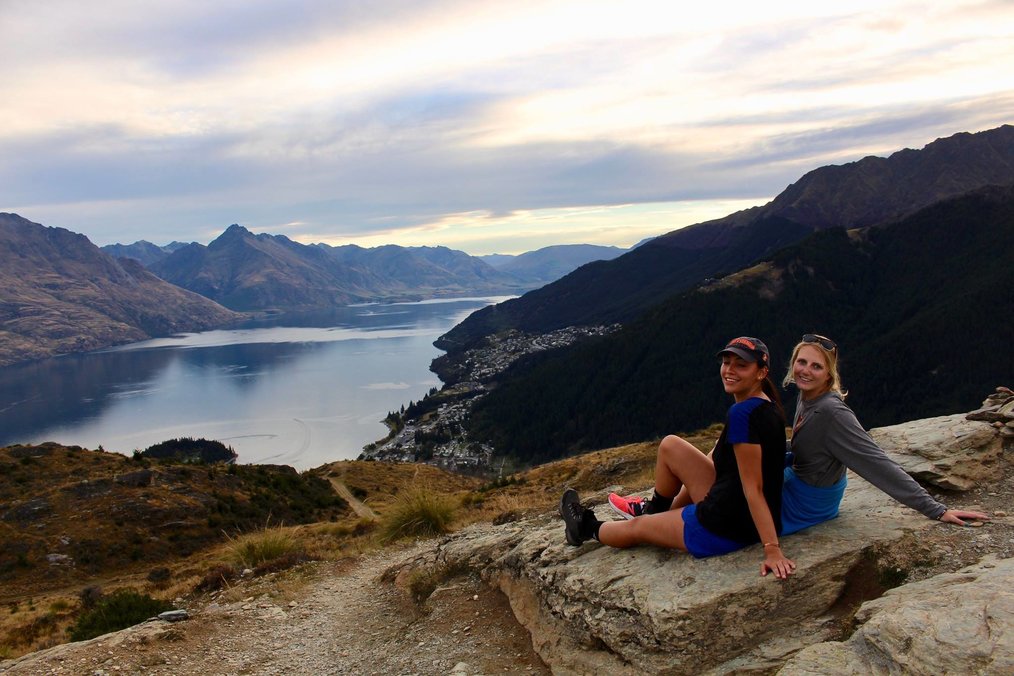
No matter what city your host university is in, public transportation is almost always readily available. If you are studying in a larger city, such as Sydney, Melbourne, Brisbane, Perth, or Gold Coast, try to avoid taxis and Ubers.
At a much lower price, there are trains, trams, and busses that can take you anywhere you need to go. These allow for easy and relatively cheap options for getting around the city and visiting nearby attractions. A lot of them offer “go cards” or something similar to make your travel easier. You simply load your card with money and scan it whenever you get on a train, tram, or bus and it deducts the cost from your balance.
If you are studying in a more rural area like I did, just find a friend. Roughly three-quarters of the students in my dorm had their own vehicle, so I would just hitch a ride with one of them whenever they were going to town for groceries. There was also a public bus system that made a stop at my college, so if nobody was making a trip to town I used that.
Use these other budget-friendly travel tips
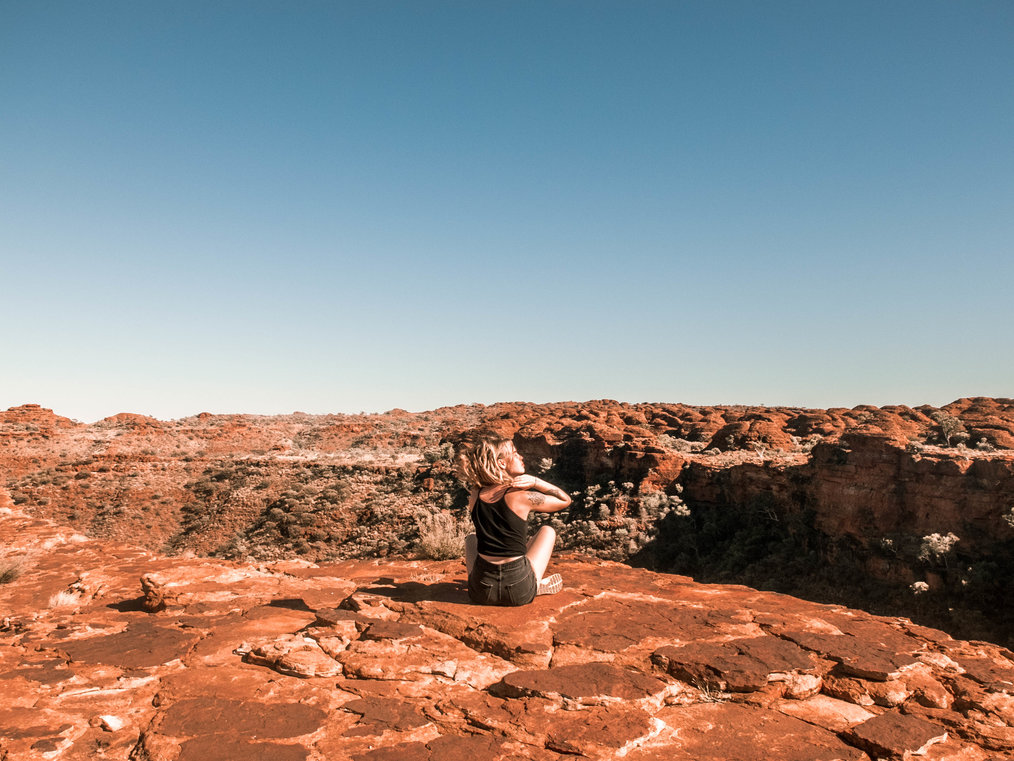
Making local friends is a great way to save on travel in Australia, especially on longer breaks like between terms. The holiday breaks at my Aussie college were two weeks long each semester. My friend knew that I was on a budget, and because I didn’t have much money to spend on traveling, he offered for me to come with him to his home in Townsville. This turned out to be the best experience out of all my time Australia.
Not only did I save money by living with his family, but I feel as if I was given an authentic Australian living experience. His family was very generous with their time, as they took me camping out in the bush, fishing on the Great Barrier, crabbing in the local tributaries, and on a number of other adventures.
They welcomed me with open arms and were more than willing to show me around the area, making sure I enjoyed my time while refusing to accept any money. You will find that nearly all Australians are equally hospitable as my friend’s family, and if you are given a similar opportunity you should definitely not pass it up.
If you are doing some travel on your own, I recommend staying in hostels. The average price of a hostel in Australia is around $25 per night, which really isn’t bad considering a hotel would cost you at least $100. Not only are hostels a cheaper alternative to hotels, but they are also a great way to meet new people. I was a little skeptical about staying in a hostel at first, but I ended up loving each one I stayed in. For easy booking, I downloaded the Hostelworld app to compare prices, read reviews, and to get more information.
Even if you are on a budget, you can make the most out of your time in Australia by cutting back on unnecessary expenses. Maybe make a list of the top five or ten things you want to do or see, and budget accordingly. Cut back on alcohol spending by buying goon, take public transport rather than Uber, buy groceries rather than eating out, and make some friends.
Enjoy the experience!
Studying abroad in Australia was by far one of the greatest experiences of my life. It helped me get out of my comfort zone and really embrace my newfound love for traveling and meeting new people. I was able to gain many incredible experiences while staying on a fairly tight budget. If you’re like me and money is tight, try to follow my suggestions and you will be off to the right start. Happy travels!

